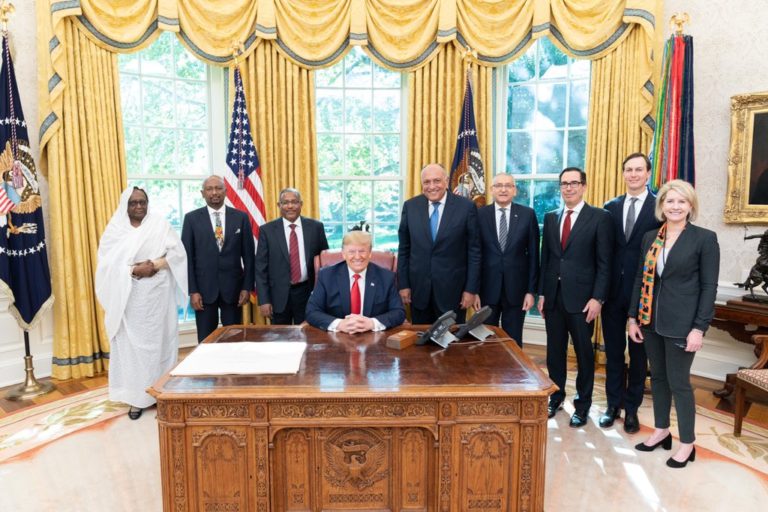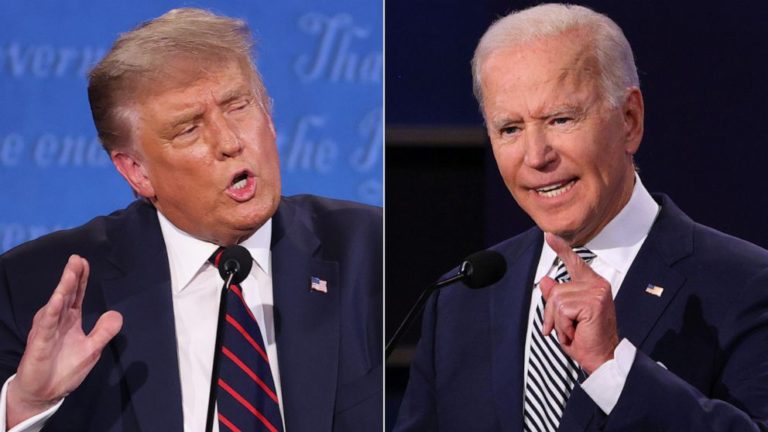
Senator Bernie Sanders holding a rally in Washington Square Park in 2016. Photo courtesy of The New York Times
Many say that New York University is one of the most liberal universities in the United States. Safely nestled in a traditionally blue state, New York City itself has been an active participant in many progressive movements, from women’s rights, to gay rights, to gun reform protests. As a result, NYU students enjoy the opportunity to be as politically involved as they want. NYU’s liberal leanings, however, are not monolithic.
Take into account the sheer number of candidates running for the 2020 Democratic nomination, and you can imagine how far spread the opinions of NYU students can be. Last month, we saw Elizabeth Warren take Washington Square Park by storm. Now we see the NYU for Bernie 2020 group kickstart their own campaign to help Sanders clinch the nomination. Senator Warren and Bernie are divisively on the very far left in comparison to their fellow candidates. As a result, political pundits have wondered if these two vivacious, rebellious go-getters will split the vote among their faction.
I had the pleasure of interviewing two NYU for Bernie 2020 members, Tarun Bommakanti and Natalie Carranza, on their thoughts about Bernie’s vision and his chances of winning.
Were you a Bernie supporter in 2016? If so, what made you stick with him? If you’re a new 2020 supporter, what made you change your mind?
Tarun: I’ve been a Bernie supporter since 2012 when I followed his Senate re-election campaign. I desperately wanted him to win the Democratic nomination in 2016 and believe that in this election cycle, he will finally pull it off. His commitment to progressive policies and economic populism for nearly 40 years gives us a lot of history to look at when comparing the records of competing candidates. Bernie Sanders has been on the right side of every issue throughout those 40 years and has demonstrated an unmatched wisdom, vision, bravery, gumption and compassion his entire career. I strongly believe he is the best candidate against Donald Trump in the general election, but more importantly, that he is the only candidate with the political will to bring about the structural change so desperately needed in this country, the absence of which led to the election of someone like Trump in the first place. My support of Bernie Sanders and his brand of leftist economics has only increased since becoming a student at the NYU Stern School of Business, contrary to what many might think, and having a better understanding of economics and finance leads me to believe with increased conviction that his policies are the most comprehensive and forward-thinking.
Natalie: I was a strong supporter of Bernie Sanders in 2016-a campaign which shifted the Democratic Party platform and cemented its current lexicon-and continue to support him today because he is the only candidate that I trust to fight for the people’s agenda. It is time to be bold and ambitious. It is time to fight for our futures, our fellow citizens, and the ethos of our country. The time for incremental change has passed and the myth of its success has failed. The United States is at its riches yet most unequal point in history, with the majority of wealth concentrated at the top while millions of Americans suffer from financial insecurity.
The Working Families Party endorsed Bernie in 2016 but decided to endorse Elizabeth Warren during this election cycle. Do you think this is a significant challenge for Bernie, or a temporary roadblock?
Tarun: Though it would have been great if the WFP endorsed Bernie, I don’t believe it will be a significant challenge for his campaign in the long run. The Warren campaign will certainly benefit from the WFP’s grassroots infrastructure, volunteers, donors and political connections, but it won’t necessarily be a windfall that will put her candidacy leagues above Bernie’s. Bernie Sanders already has a well-developed campaign infrastructure, stemming from his 2016 run, with an extensive ground game in key primary states as well as a very long list of supporters, donors and volunteers that he can rely on.
Natalie: The decision by the Working Families Party to endorse Elizabeth Warren over Bernie Sanders is disappointing, but will not slow his movement. Though their support will be missed, it is Bernie’s 100 percent unprecedented, grassroots-funded movement in both the primary and the general election that will be the force to bring him to victory, not an endorsement from any one group.
Despite slight stagnation in the polls and various claims from media pundits that his campaign is finished, Bernie’s support is as strong as ever. His campaign reported the highest third quarter fundraising numbers of any democratic candidate and outraised their own second quarter haul by $7.3 million, the biggest increase in the field. Bernie’s campaign reported raising $25.3 million in the third quarter from over 1.4 million donations, with an average donation of just $18. And just a couple of weeks ago, his campaign became the first (and remains the only) to hit one million individual donors, 99.9 percent of whom have not maxed out and can continue to contribute to his campaign.
Pundits have pointed out that Bernie and Elizabeth Warren seem to share the most similarities in policy. If you had to pick a second-choice candidate, would it be Elizabeth? Why or why not?
Tarun: My second choice candidate is, without a doubt, Elizabeth Warren. She is a strong progressive who would make an excellent president and would deliver great results for the people of this country. In fact, there are some issues that I agree more with Sen. Warren on, such as ending the filibuster and Wall Street reform. But between the two candidates, Bernie Sanders is undeniably the better, more progressive choice. Many of the policies that are now shared by Sanders and Warren are only in the public sphere and scope of discussion because of Bernie having argued for them for decades. Nobody was talking about single payer healthcare for at least a decade, before Bernie Sanders made it a central part of his platform in 2016.
Natalie: Bernie positively differentiates himself from Warren on a number of issues. He is the only candidate that has rejected “corrupt” corporate money his entire career, and will continue to do so in both the primary and general elections. He has demonstrated throughout his entire career his strong political instincts and bravery, particularly when it comes to foreign policy (led congressional opposition to the Iraq War, led the campaign to end U.S. funding for the Saudi war in Yemen, vocal opposition to “endless wars” and U.S. interventionism). He also has the most convincing theory of change, which is that it happens from the outside, in. He understands that it will take a political revolution, a mobilization of millions of Americans to achieve the kind of economic populism that he promises. Elizabeth Warren is my second choice candidate, but as long as Bernie Sanders is in the race, my support will not waver.
Which Bernie campaign promise is most exciting to you?
Tarun: Until recently, single payer healthcare, or Medicare-for-all was his most exciting campaign promise. But yesterday (10/7), Bernie released a comprehensive anti-corruption plan that I think is the most important policy proposal of this campaign by a mile. The plan’s flagship proposal is to pass a constitutional amendment to get money out of politics by declaring that money is not speech and corporations are not people. This will effectively overturn disastrous Supreme Court rulings such as Buckley v. Valeo and Citizens United that have allowed for unlimited private financing of our elections, a cancer in politics today that is at the heart of every single other issue and a severe threat to democracy. No other issue can be meaningfully addressed without getting rid of the ability for the rich, powerful and corporations to buy politicians through unlimited dark money donations.
Natalie: The most exciting aspect of Bernie’s campaign for me are his policies to dramatically reduce and eventually eliminate the extreme wealth inequality plaguing the United States. He has released a series of new tax plans that will finally make the rich pay their fair share, allowing him to pursue policies like Medicare-for-All, a Green New Deal, student and medical debt cancellation, etc.
Which Bernie campaign promise are you worried will isolate certain voters (i.e businessmen on Wall Street)? If you don’t have one in mind, what Bernie campaign promise do you think will be the most difficult for him to accomplish as President?
Tarun: Businessmen on Wall Street hate most of Sanders’ platform as do most elites and wealthy individuals. If Wall Street had its way, we would have zero regulations on financial institutions, they would constantly gamble and crash the world economy, get bailed out by taxpayers and take home seven figure bonus checks anyways only to do it all again. This is literally what has happened and will happen again if meaningful reform of the financial system doesn’t take place. Luckily, Bernie Sanders doesn’t need the votes of Wall Street businessmen to win and, unlike other candidates, he doesn’t need their money either. Bernie’s entire platform is centered around restoring equality of opportunity and helping working class people in this country, regardless of their race, gender, sexual orientation or where they live. He protested in favor of civil rights as a college student in the 1960s and 70s, fought for the rights of the LGBT community as far back as the 80s when it was political suicide and has been an advocate for women’s rights his entire career. The only people his campaign wouldn’t help are the elites who are in power today, who care only about tax cuts and deregulation. These people are extremely powerful and will fight hard with corruption, lies, bigotry, xenophobia and every other tactic to make sure Bernie doesn’t becomes president and doesn’t deliver on the structural change he promises. Therefore, every single one of his campaign promises will be extremely difficult to deliver on.
Natalie: Bernie has always emphasized being a champion of the people and fighting for policies that will benefit the 99%. He actively tries to improve the standard of living for all Americans, at the minor inconvenience of the very wealthiest of us. I mean, what’s $9 billion in taxes to Jeff Bezos, who has a net worth of $113 billion? His campaign is not about isolating anyone, but rather making our government inclusive and accessible to everyone.
Are you concerned that Warren and Bernie will split the votes of their demographics, which could lead to a Biden nomination?
Tarun: I’m not at all concerned about this scenario. Bernie Sanders and Elizabeth Warren are the two leading progressives in the race, and the more they drive the political discourse to the left, the better. I believe Joe Biden’s lead in the polls thus far (and it’s still quite early in the campaign) is largely based on name recognition and his affiliation with Obama. This goodwill isn’t based on anything tangible like campaign infrastructure, fundraising or a detailed, comprehensive and popular platform and will thus begin to fade as the campaign goes forward. In fact, I believe the “Biden fade” has already begun and that once he goes down into third or fourth place, he will not stage a comeback no matter how hard the media or his donors try to resuscitate him. His own campaign tries to limit his public appearances because every time he talks, he puts his foot in his mouth while, in contrast, Bernie Sanders has been campaigning so much he got a heart attack. Until Biden eventually drops out of the race, I believe it’s in the best interests of both the Sanders and Warren campaigns to continue driving the discussion to the left, stick to talking about policy and make headlines and gain support amongst democrats and independents with their populist rhetoric. Later on in the campaign, I think things will get more interesting as the field winnows and Bernie and Warren are the two remaining candidates.
Natalie: Although it would seem logical that Bernie Sanders and Elizabeth Warren, being the two most progressive candidates of their field, would cannibalize one another’s support base, the general trend that we’ve seen so far suggests otherwise as they draw their support from vastly different voting demographics. Similar to Biden, Bernie’s support base is made up of a multi-racial and working class coalition, whereas Warren is popular among highly educated, affluent, and white voters. Warren shares popularity among those demographics with candidates like Kamala Harris and Pete Buttigieg, which may account for her recent surging in the polls that has taken place simultaneously with their underperformance.
Tarun is a junior studying finance at Stern, while Natalie is a Politics major at CAS with a minor in documentary filmmaking at Tisch. They are both Campus Corps Leaders with the Sanders 2020 campaign. If you’re interested in Bernie as a candidate or are interested in supporting him, contact NYU for Bernie 2020 on Facebook!



